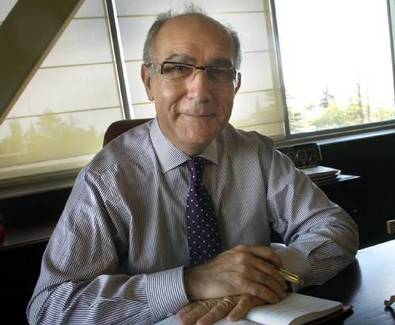Performance Audit Seems To Back Up Chancellor Shirvani's Call For More Central Control Over University System

The North Dakota State Auditor’s office has released a performance audit report (see below) for the North Dakota University System central office, and it’s hard not to see the report as strengthening embattled Chancellor Hamid Shirvani’s position.
Shirvani caused a lot of political indigestion when one of his first moves, upon taking the chancellor position, was to call for the legislature to approve dozens of new employees to work in the university system office. Many, including this observer, felt Shirvani was just another higher ed bureaucrat looking to expand his bureaucratic empire.
Yet, according to this audit, there is a real need for more central oversight of North Dakota’s sprawling, eleven-campus university system. “We recommend the University System Office take appropriate action to obtain the necessary resources to adequately perform the functions and duties of the office,” the audit report says. “This should include determining whether campus resources can be used in centralizing certain functions and providing support for personnel costs.”
That last is a nod to the fact that the individual universities have far more auditing and legal capacity than the university system audit. Which doesn’t make any sense. The NDUS office is tasked with overseeing the universities. Yet, most of the auditors and lawyers work for the universities. How likely is it that an auditor working for North Dakota State University, as an example, and reporting to the President of NDSU is going to feel free to probe problems and issues that are inconvenient for NDSU?
“The Director of Internal Audit reports directly to the President,” a 2011 risk assessment report for NDSU reads referring to university President Dean Bresciani, “resulting in potential independence issues.”
That’s exactly the problem the state auditor is pointing out.
Now, those of us who feel that the budget for higher education in North Dakota is already far too bloated (the Wall Street Journal recently tagged ND has having the fastest growth in higher ed spending in the nation) shudder at the idea of adding more staff to the system. But the solution for that, as the state auditor points out, is to look at pulling resources from the universities. Take the existing auditors and laywers who are currently working for the universities and have them report to the university office.
Shirvani’s mistake wasn’t in calling for more oversight of the universities – that’s needed, desperately – but rather asking for more money to do it when he already had the resources available to him.
And we can also see, from this audit, what is driving the push back against Shirvani from the university presidents. Shirvani is, one way or another, moving toward more central oversight of the university system. The university presidents, who to date have been getting away with murder, like things the way they are.
But as this audit notes, the status quo isn’t sufficient for providing proper oversight and governance of the university system.







